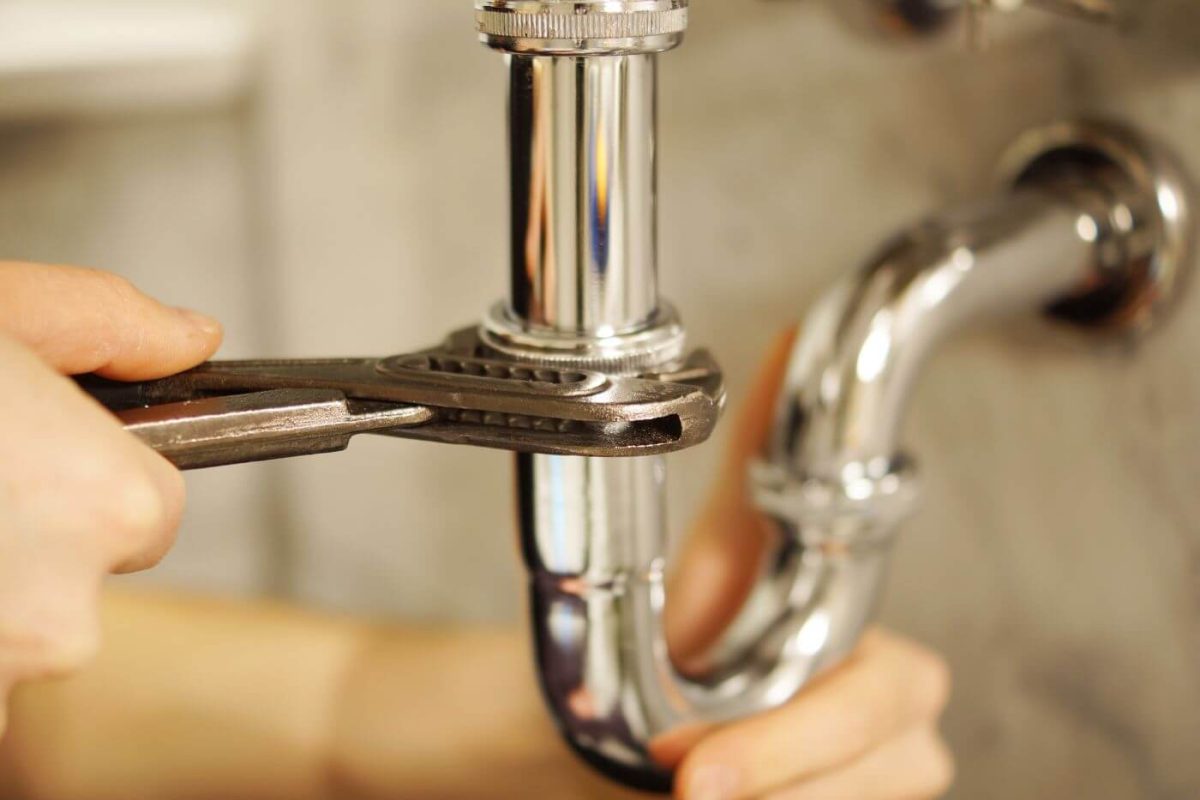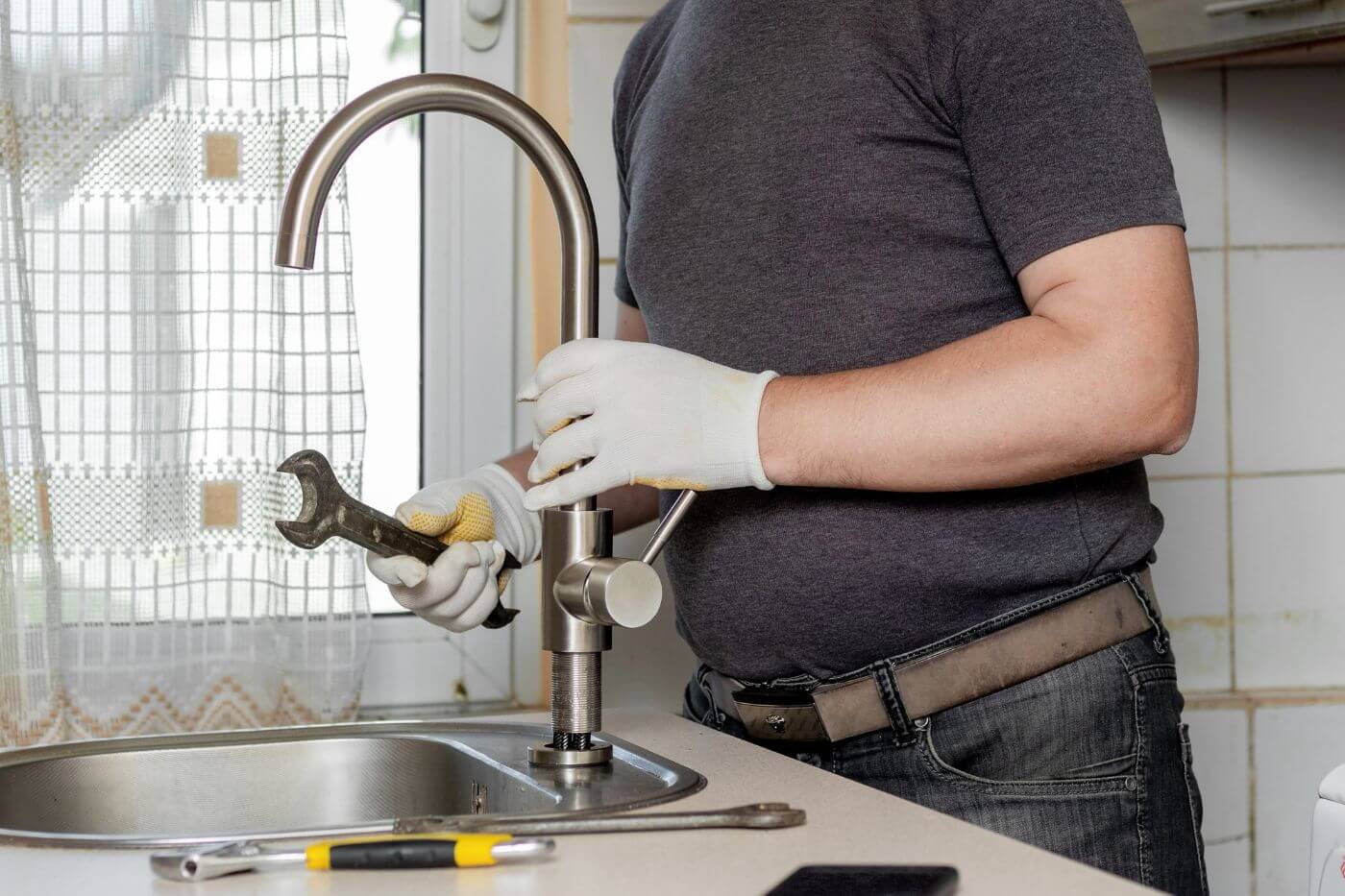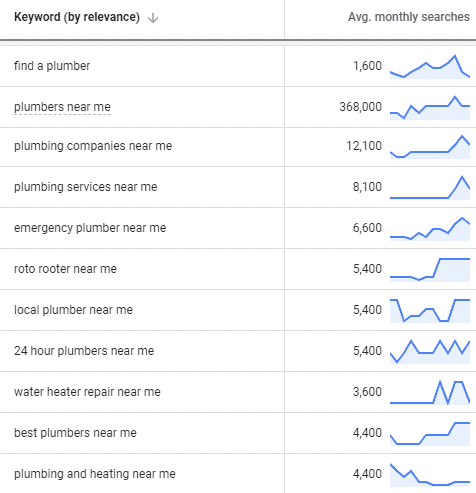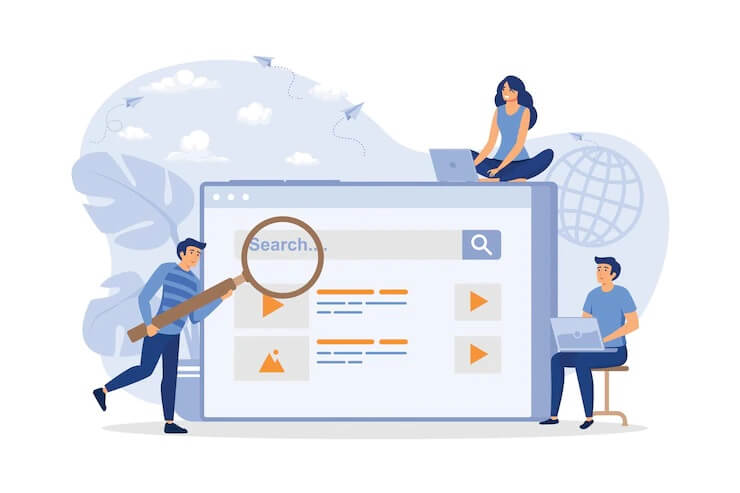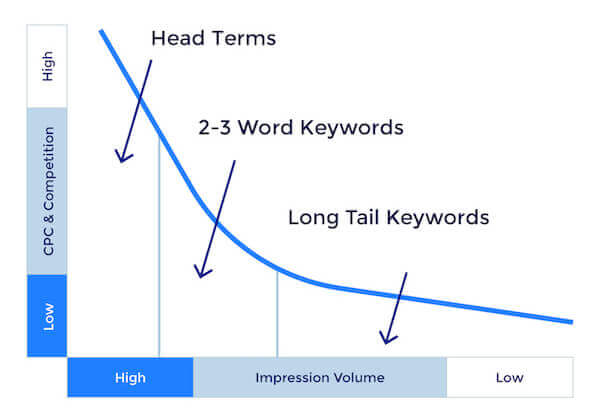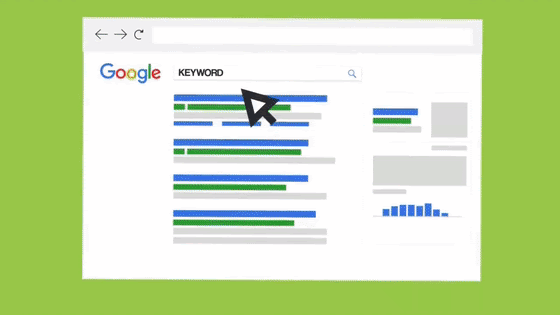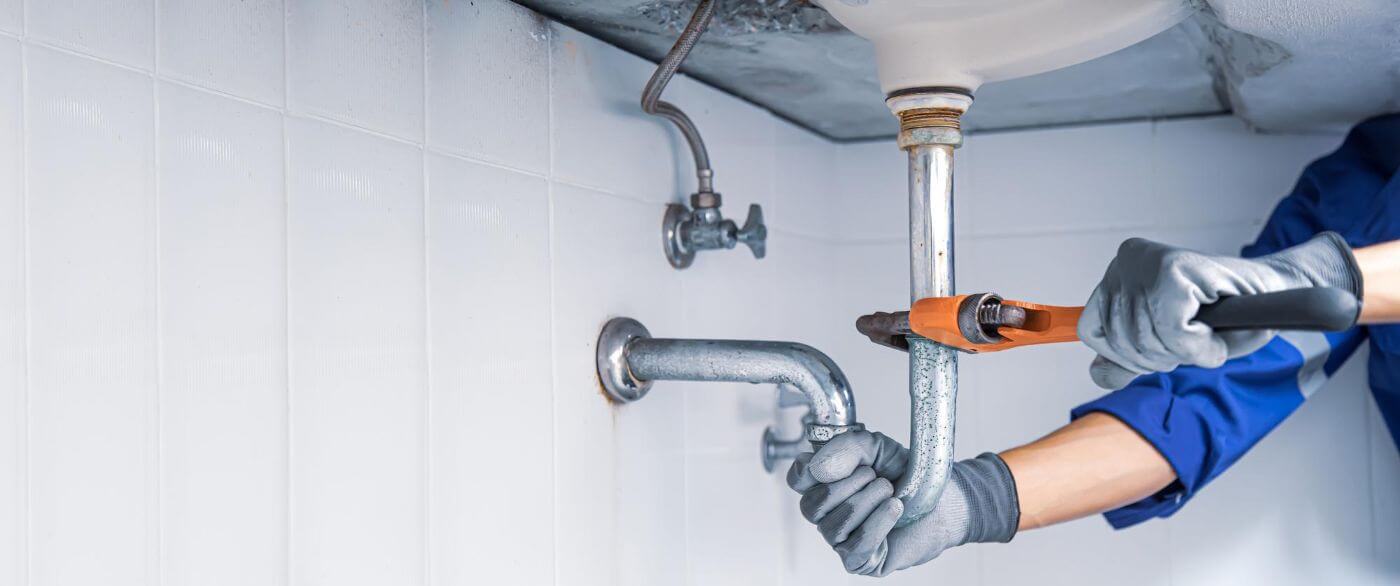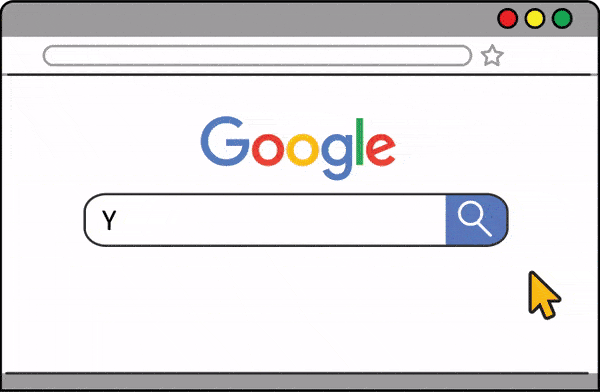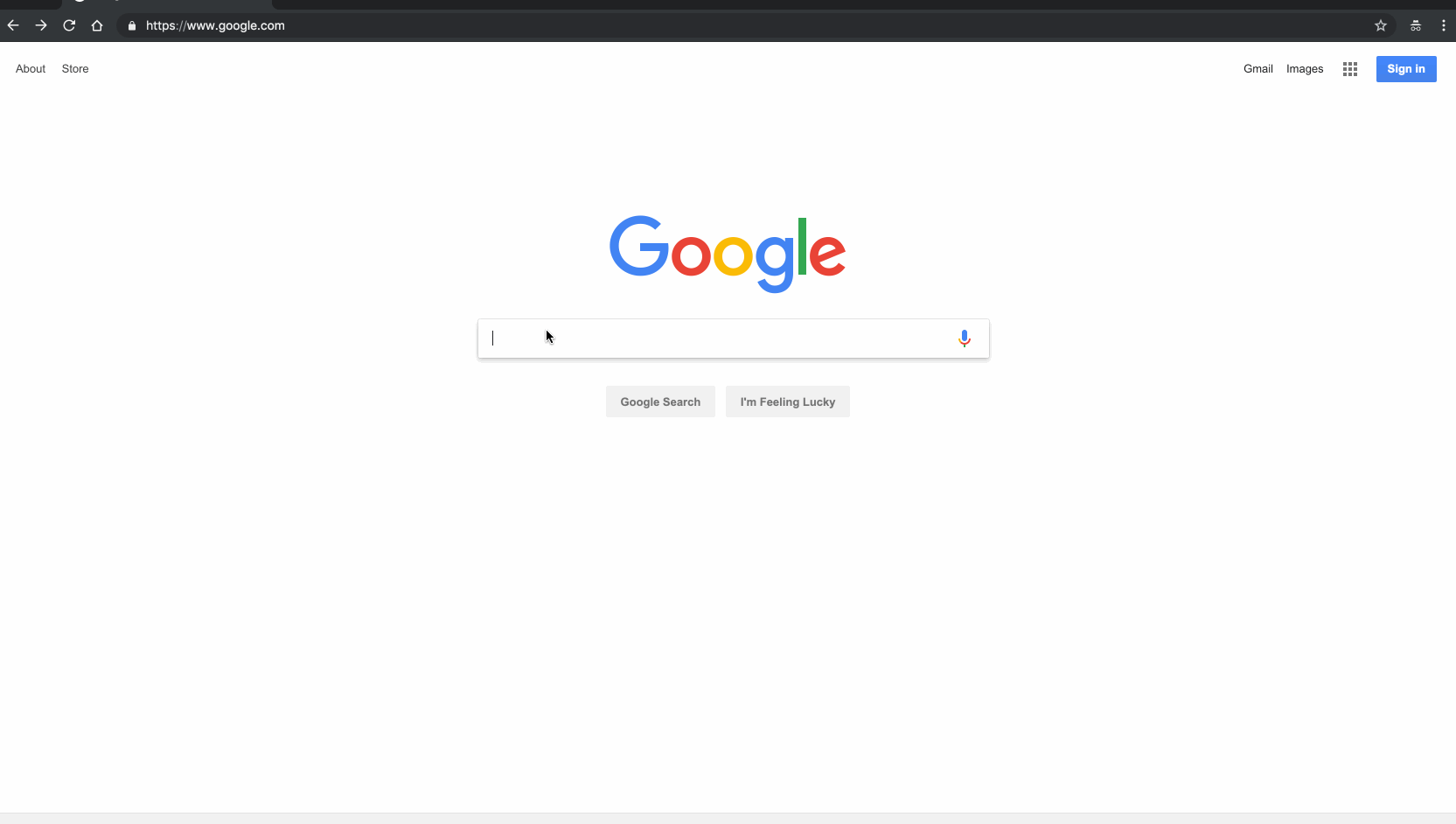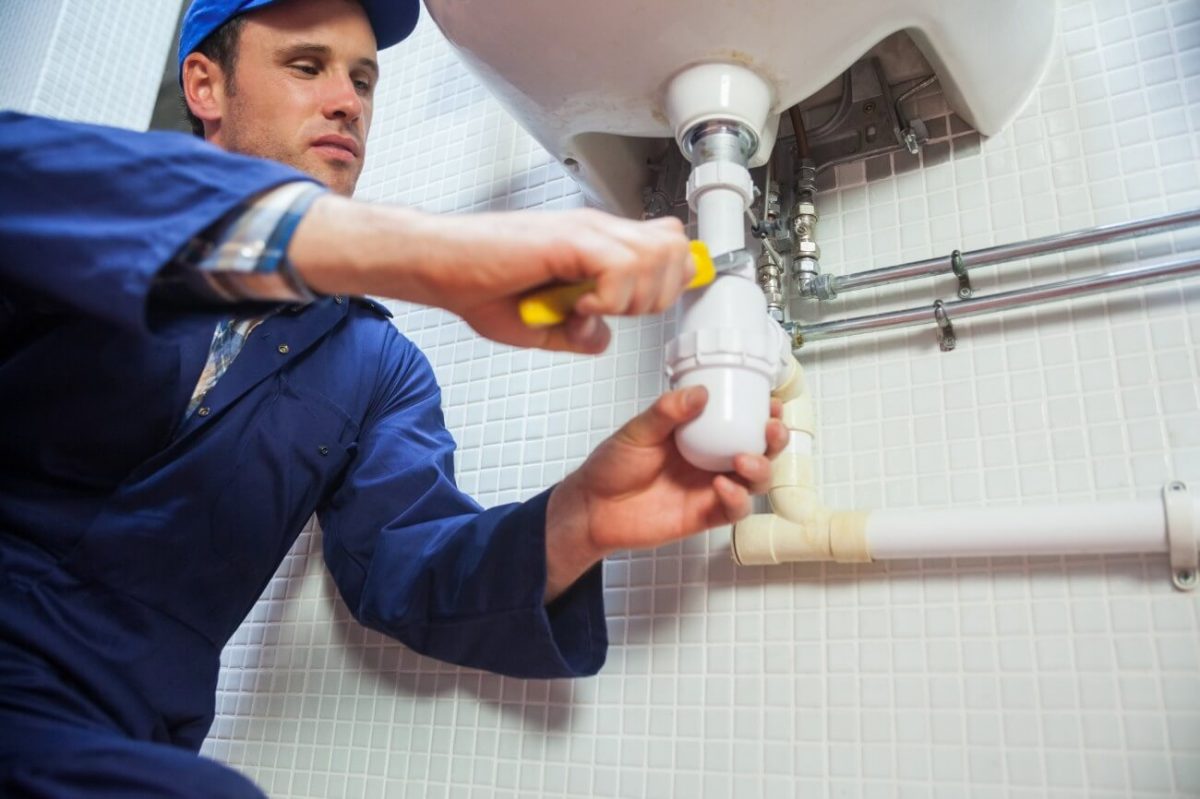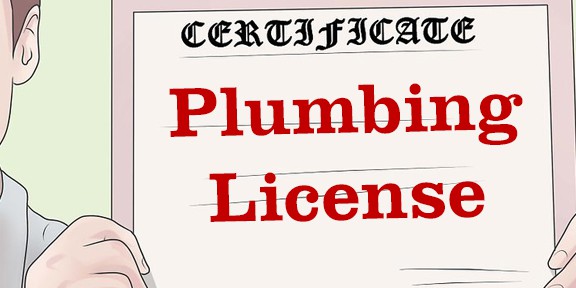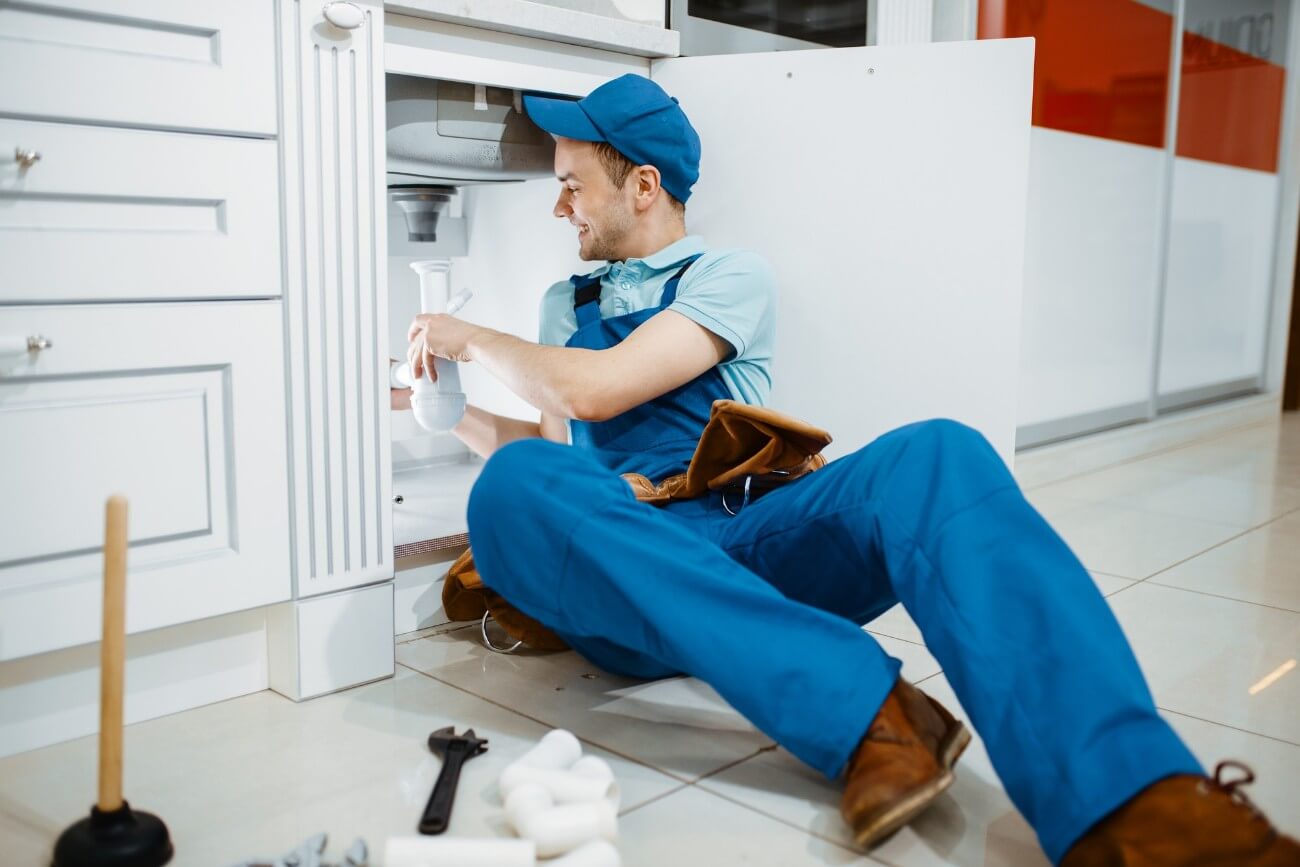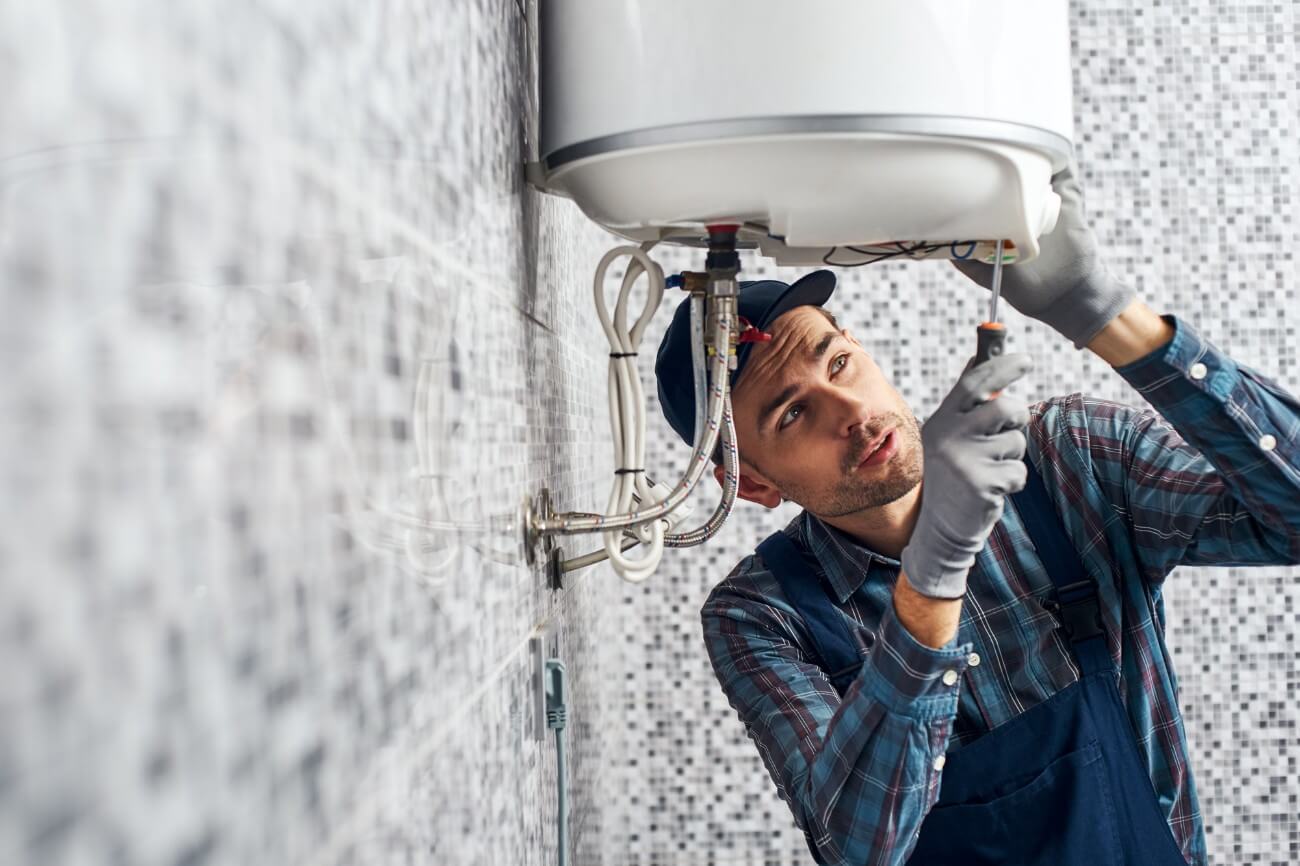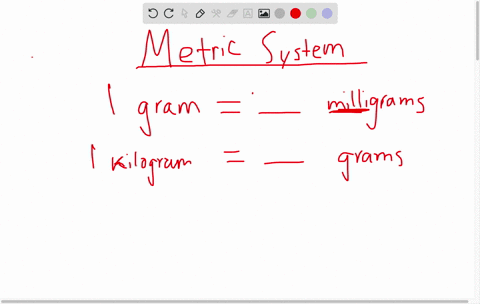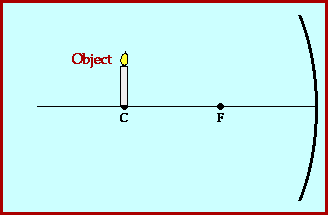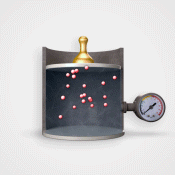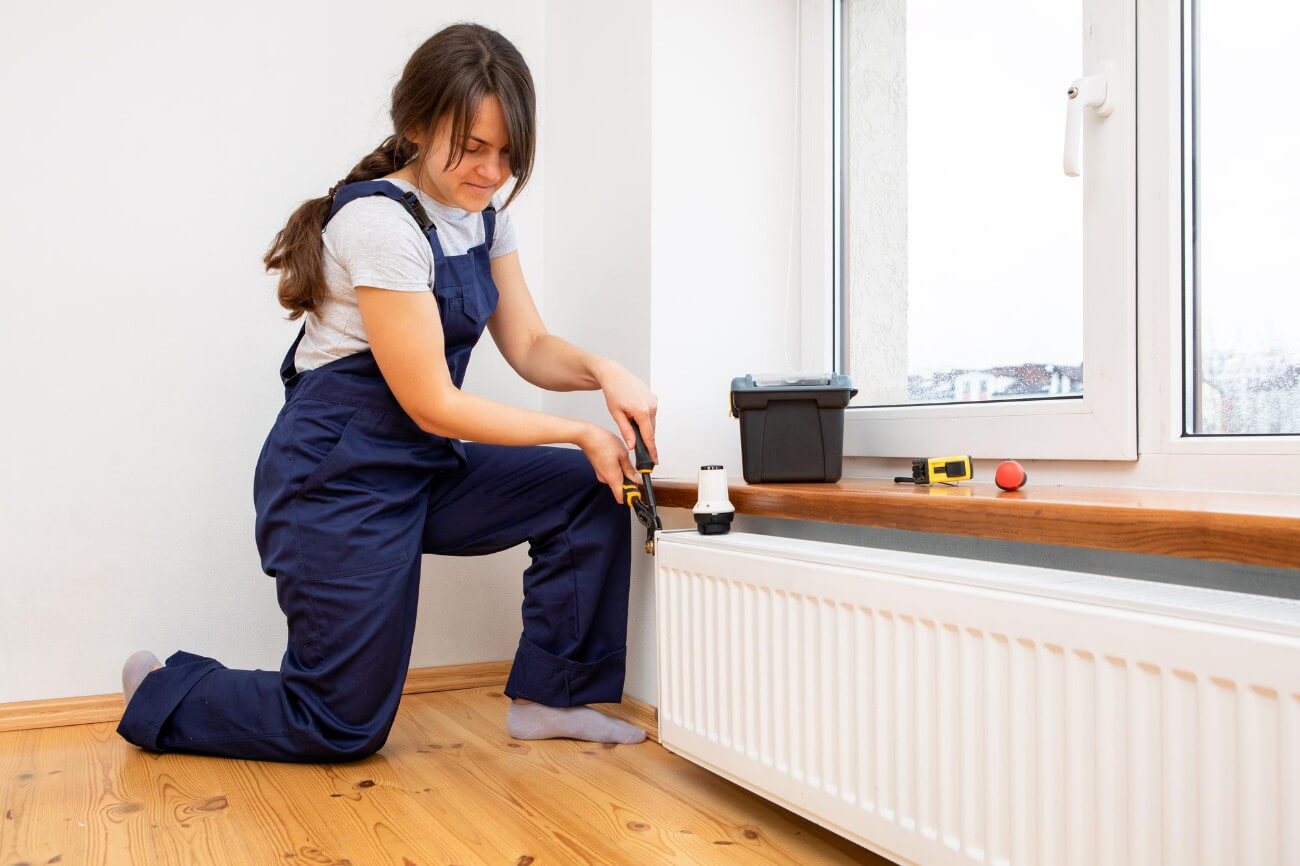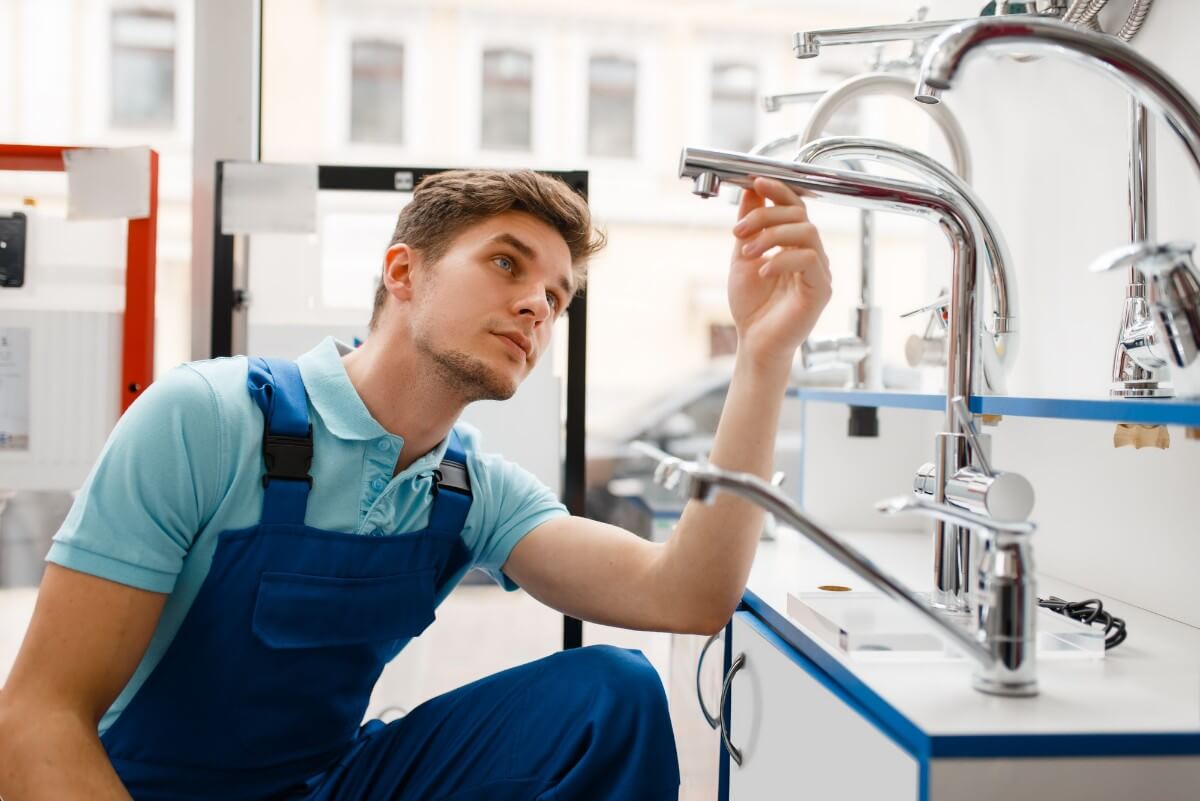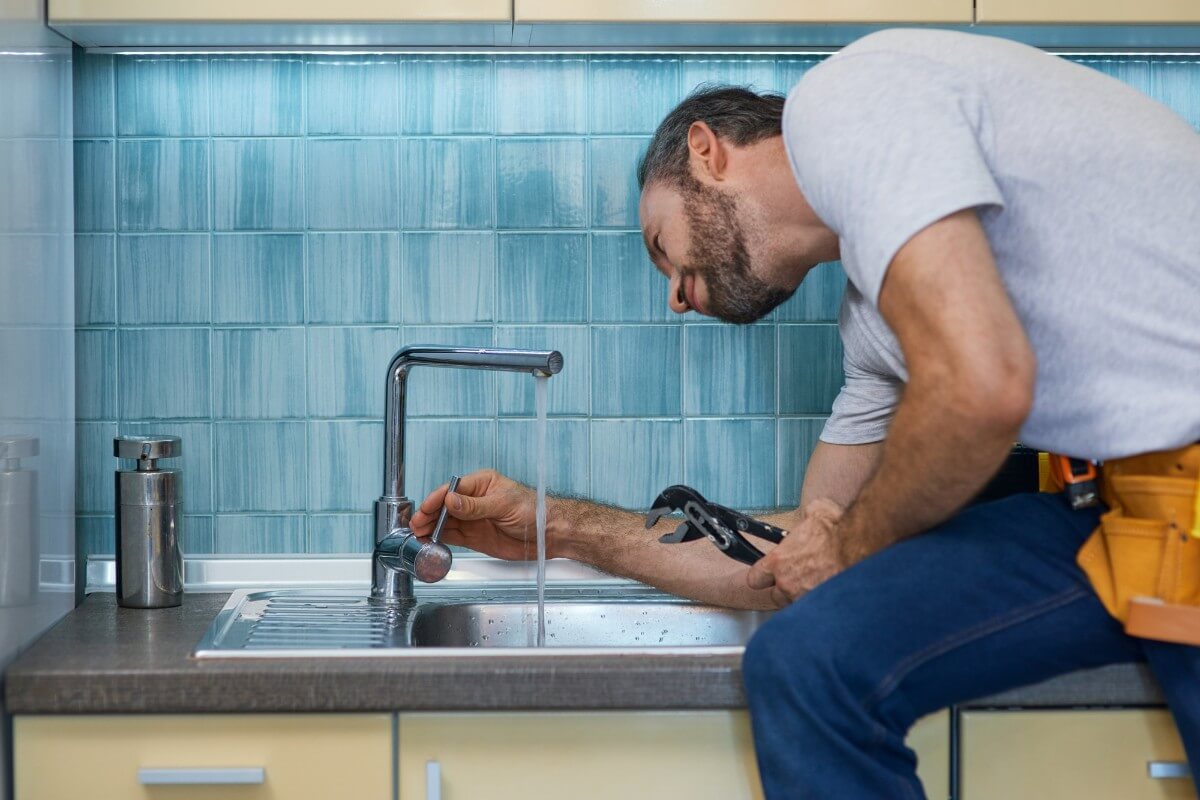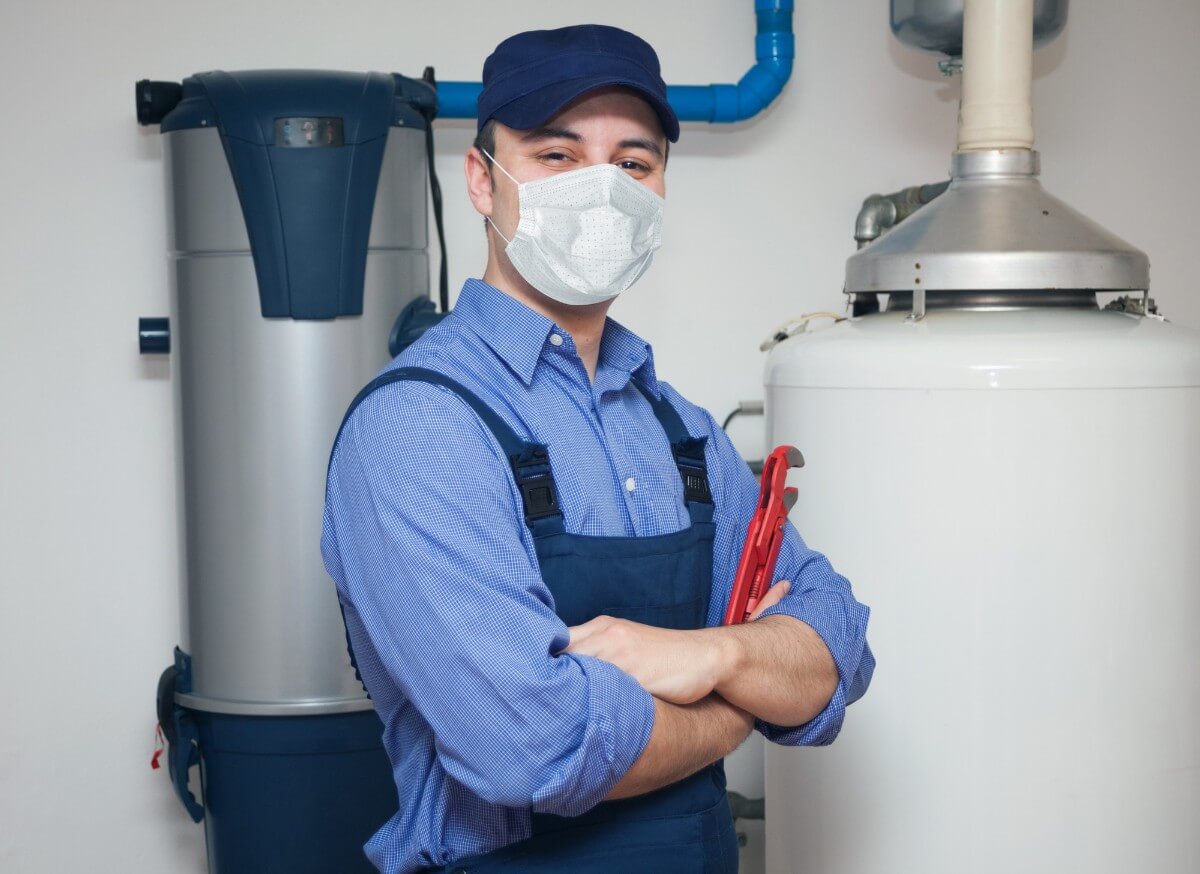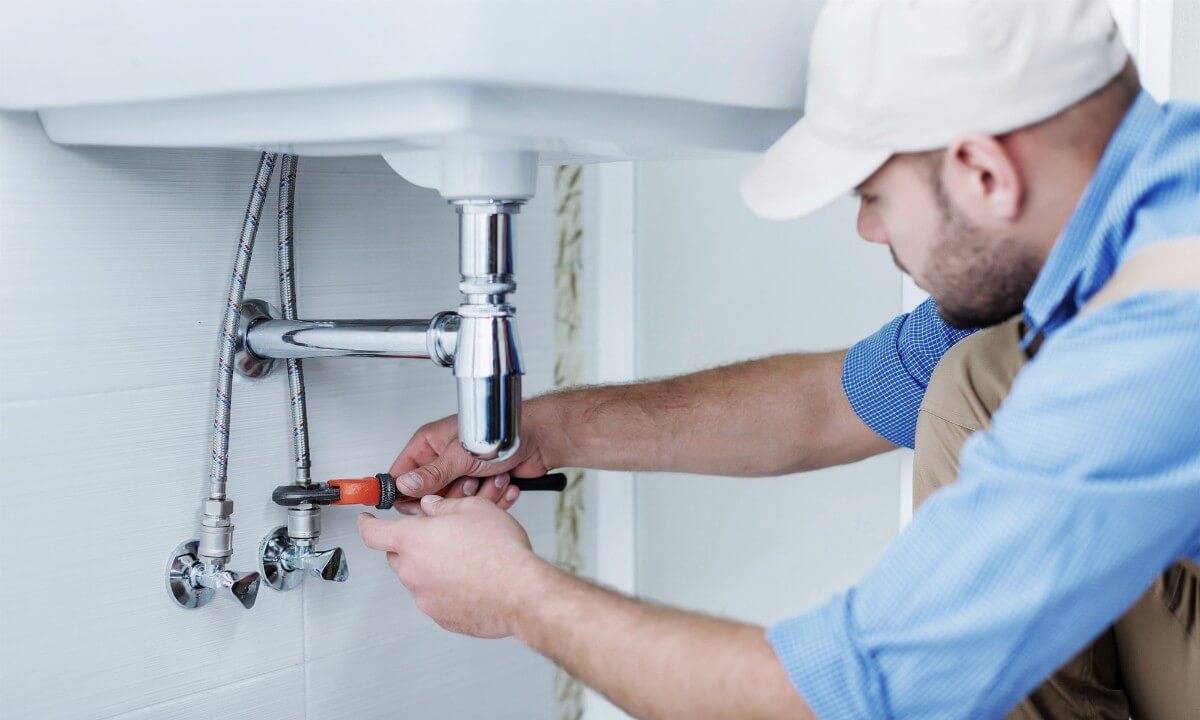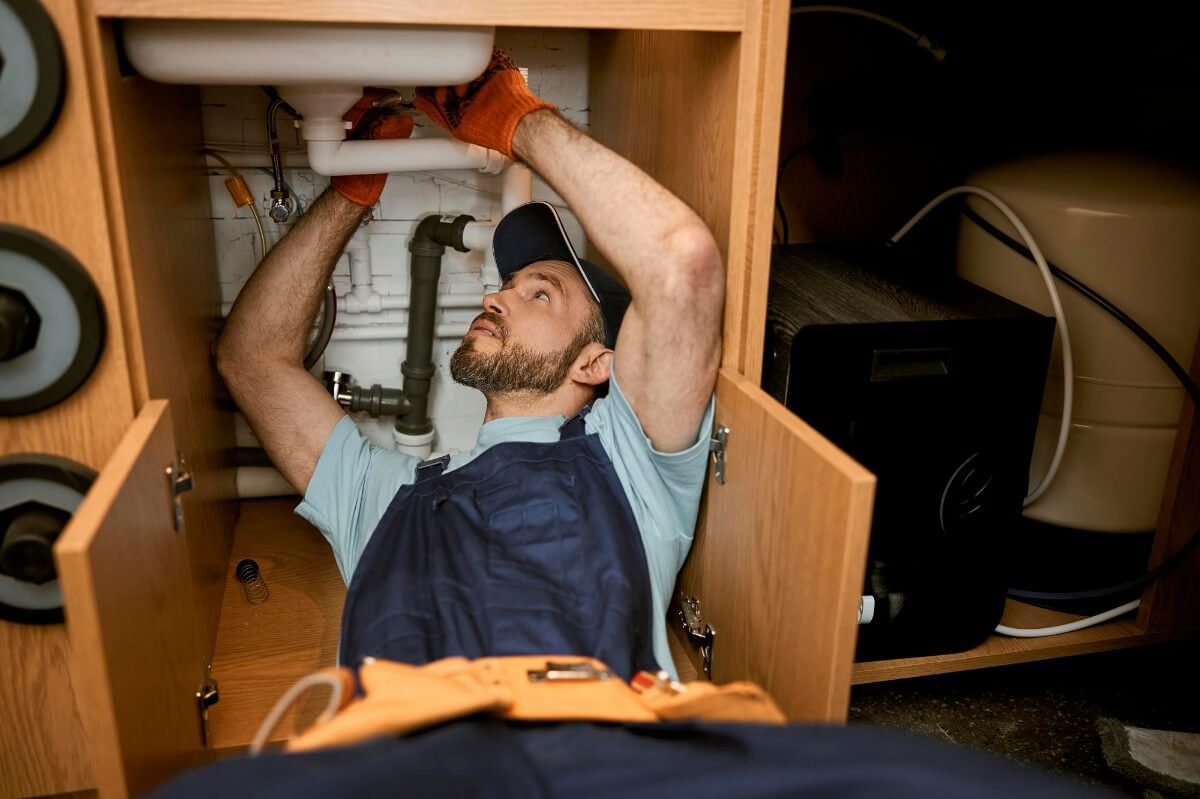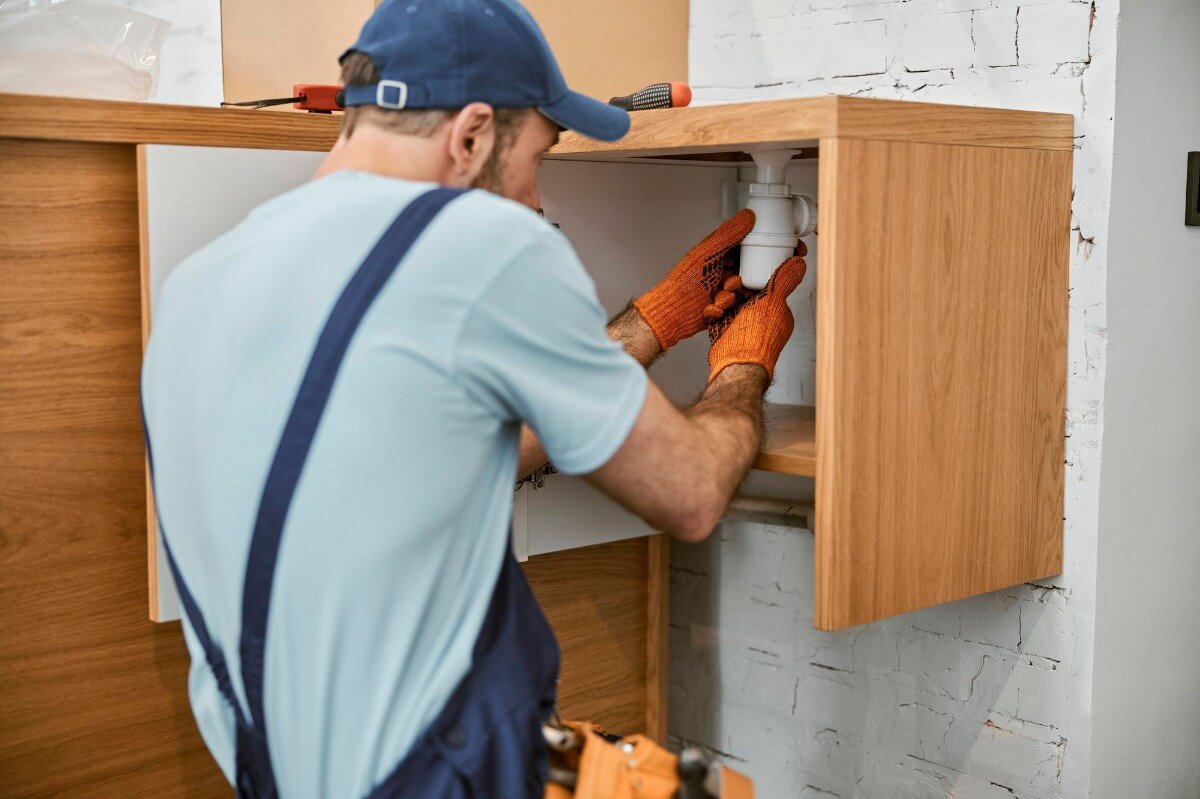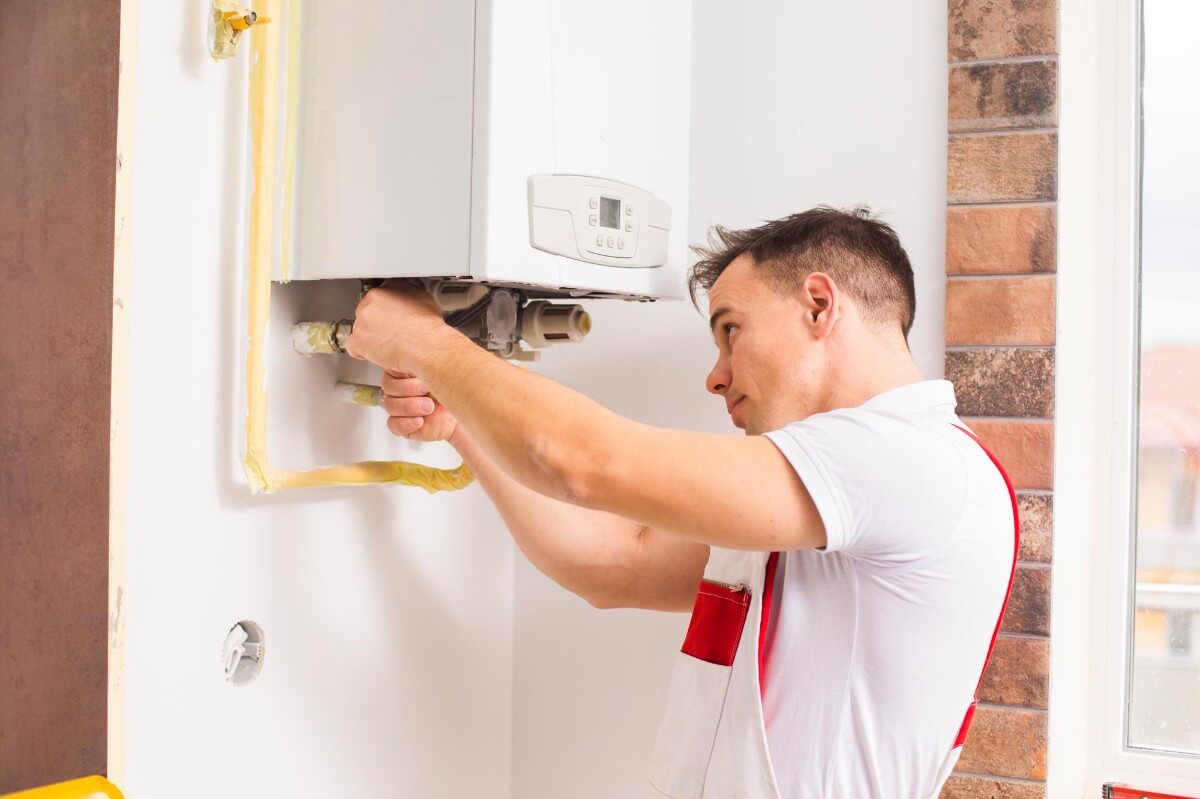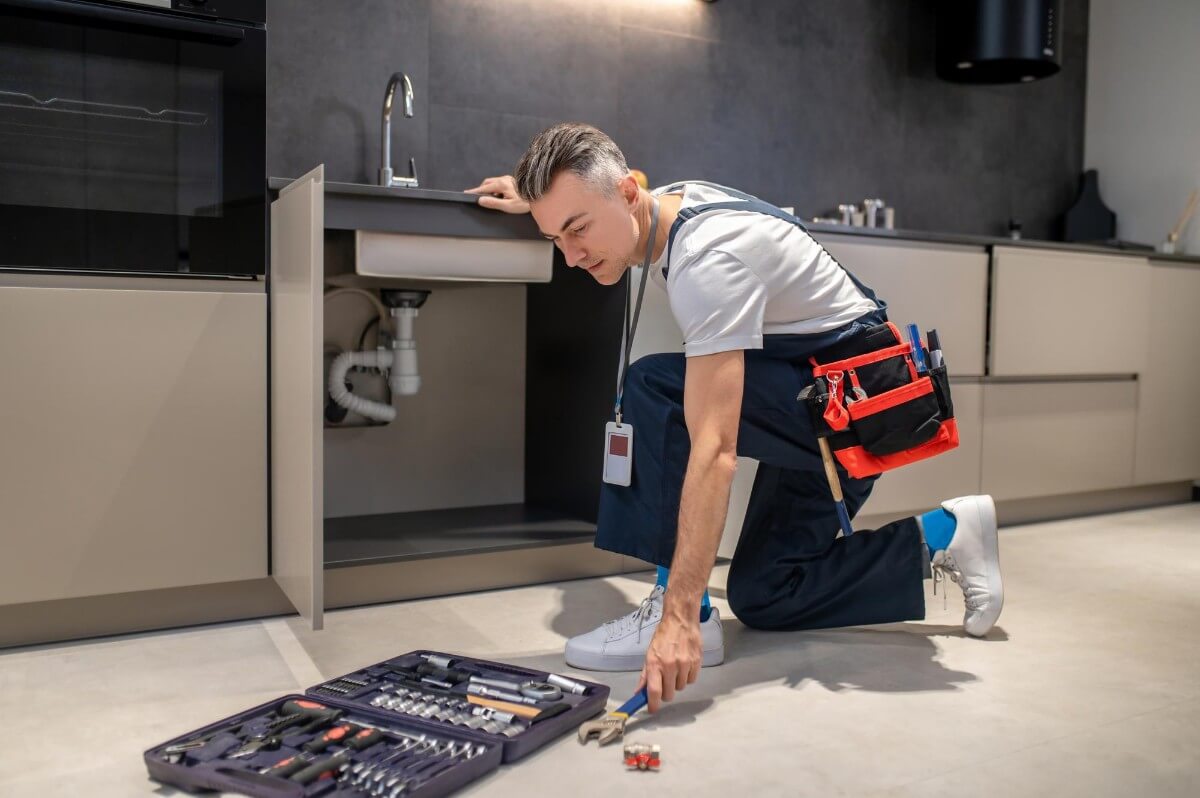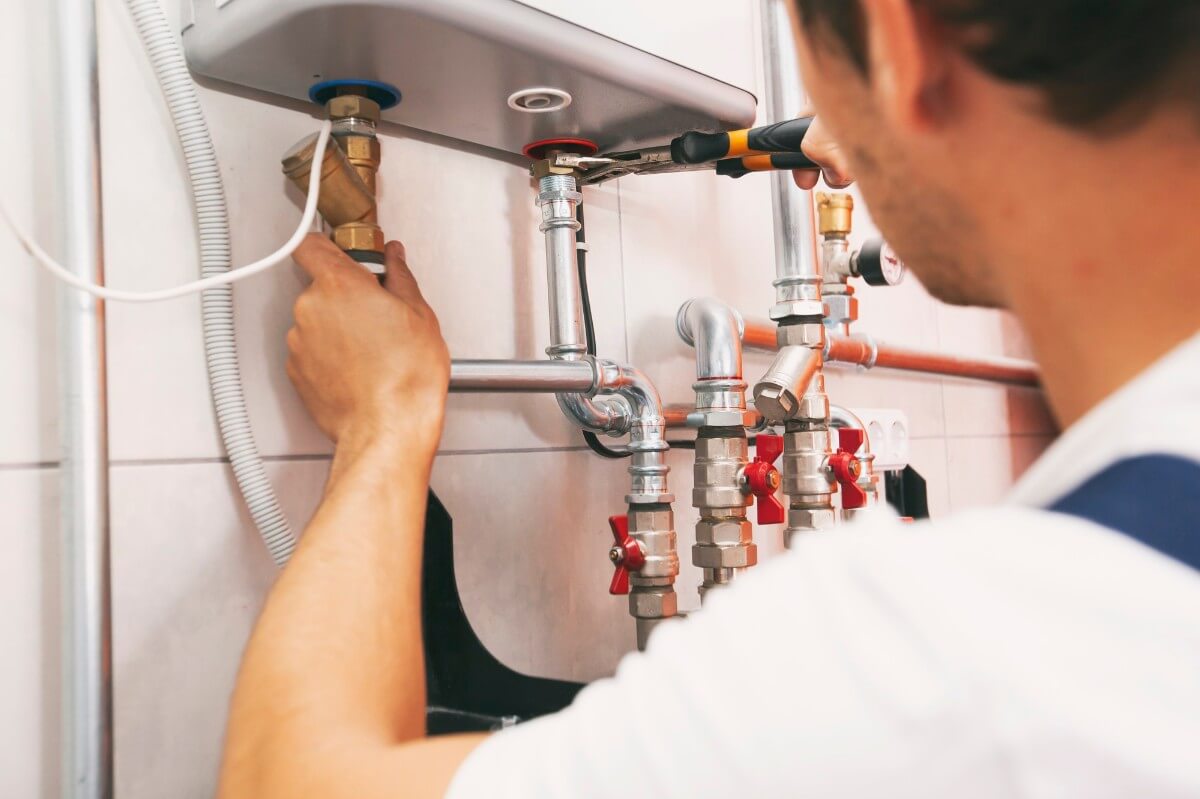Plumbing SEO Keyword Research for Plumbers of All Sizes
It was not many decades ago that if you wanted to promote your plumbing business, you placed an advert in the local newspaper and hoped that homeowners would call you to book jobs. Let’s face it. But this conventional marketing was super expensive (unless you provided a coupon) there was no proven process of monitoring its results or return.
In modern online marketing, your small plumbing business can create an internet marketing campaign with measurable results for little or no money. One of the effective ways to lead clients to your website is to choose the right plumbing SEO keywords – which our experts can help you easily do!
When it comes to generating plumbing leads online, you need to know what prospects are searching on Google, Bing, and other search engines first. Picking the right plumbing keywords is one of the crucial steps in creating a successful search engine optimization strategy.
Driving traffic to your plumbing website is a priority, but attracting the right prospects is a necessity. But choosing the right keywords for your plumbing company content is only half the battle when it comes to attracting online traffic to your site. (The other half of the battle is creating killer plumbing SEO content.) But don’t feel intimidated! This post will provide everything you need to know about choosing the right plumbing keywords for your business.
Do you want to know what plumbing keyword list your business should be ranking for? Read on!
First things first.
What is a plumbing SEO keyword?
Keywords are phrases and words that people type into search engines such as Google or Bing to find your plumbing services or products. For example, if they are looking for a plumber to repair their toilet, they may type something like “toilet repair contractor near me.” Although that phrase contains more than one word. It is still a plumbing SEO keyword!
Implementing an intent-based plan for your plumbing SEO and content marketing efforts could be the change you require to differentiate your website from the competition.
To create your plumbing marketing strategy around intent, you will require to begin with keyword research that helps you understand the different types of plumbing keywords.
Most plumbing SEO experts agree that four types of keywords can be used to classify intent:
- Navigational keywords – here is where people are intending to find a particular page or website.
- Commercial plumbing keywords – searchers are looking to investigate plumbing services or brands.
- Transactional plumbing keywords – searchers are intending to hire a plumber to offer services.
- Informational plumbing keywords – people are looking for an answer to a particular plumbing question or general information.
Why is Plumbing Keyword Research Important?
Keyword research assists you find which phrases and terms are best to target and offers important insight into the queries that your prospects are actually looking at on Google. The insight that you can obtain into these plumbing keywords can assist inform content marketing strategy as well as your larger plumbing marketing strategy.
Prospects utilize plumbing company keywords to find answers when performing research online. So, if your plumbing content is successful in getting in front of your audience as they conduct searches online, you stand to obtain more organic traffic. Therefore, you should be focusing on those keywords. Here are some advantages that you can leverage from doing plumbing keywords properly:
- Plumbing marketing trends insights: Researching keywords will give you insights into your prospect’s buying behavior and trends. Keep updated on what’s famous and crucial to your target market and utilize that to keep your content relevant.
- Increase Conversion: If you are creating plumbing content, your potential clients find it helpful and interesting they will want to learn more. But how do you understand if your plumbing content is reaching the right target audience? After you begin ranking for the plumbing SEO keywords, check your Google Analytics.
- Prioritize your time: When you understand what plumbing keywords to target, you can create content strategically relevant to your objectives. This assists you remain focused on the task with your efforts.
- Customer Acquisition: If your plumbing business has quality content that people are searching for, you can meet their requirements and offer them a call to action that will direct them into the buyer journey from the awareness stage to the point of booking a job. By researching plumbing keywords for their search volume, popularity, and general intent, you can handle the questions that most prospects or clients want answers to.
Tips on How to Select the Best Plumbing SEO keywords for Your Business
The keywords you select can break or make your plumbing SEO campaign. So how do you pick the right plumbing keywords for your SEO campaign? If you want to know, then read on to get our tips on picking the right keywords for your plumbing business below:
Think Like a Customer
Identify your target market and put yourself in the shoes of your prospect or client when you develop your first plumbing keywords list. Ask yourself, “if I wanted to find a nearby plumber, what would I type into search engines like Google or Bing?” You can also ask others, such as family members, friends, or even clients to obtain their opinion on terms they would use when looking for your plumbing services.
Analyze User Search Intent
Search intent assists you know what plumbing keywords to pick based on why prospects search. Based on why people search, keywords can be classified into three major categories namely: commercial, navigational, and informational.
To select the right plumbing keywords with the best results you need to put yourself in the shoes of your customer.
Searches like “purchase low-cost water heater’ differ from “water heater repair” queries. One is a commercial plumbing keyword and the other one is informational.
Ideally, you should provide content on all three main areas with the objective of completing your call to action. Your plumbing keywords will target different pages dedicated to those search terms.
Transactional plumbing keywords are easiest to focus on but are also more competitive. That’s why hiring an experienced plumbing SEO agency to write your content to match those search phrases when Google crawls your plumbing website.
Analyze the Competition
Another great way to know the best plumbing keywords is by checking at what your competitors are doing. Read the content and see the metatags to assist you to know the keywords they are focusing on.
Studying your competitor’s plumbing SEO keywords will not only assist you to see what you could be missing or forgetting but also help expand your plumbing SEO keyword list. Tools like SEMrush, Ahrefs, Moz explorer, and more help you analyze traffic on your plumbing website, including for your competitors. But most of these tools are not free. That’s why many plumbers hire an SEO agency to do keyword research for them.
Understand the Long Tail Plumbing SEO Keywords
Long tail plumbing keywords are a combination of three or more phrases or words. While long-tail keywords tend to have low search volumes, they generally attract relevant traffic, are generally less competitive, and are easy to rank higher on Google. Select long-tail plumbing keywords that assist to specify your service.
Monitor the Results
After selecting your plumber keywords never fail to track them and track the results. There are trending plumbing phrases or keywords along with new search terms your competitors may be leveraging.
Don’t forget to use your keywords where possible! Use your plumbing keywords in social media posts, blogs, web content, and meta descriptions. The more you use your keywords within your posts, the easier it will be for prospects to find your plumbing company online.
Let Blackstorm Design + Marketing take a look at your plumbing SEO strategy and give recommendations.
Top SEO Keywords for Plumbers
There is no beating around the bush, any SEO campaign you run for your plumbing business, regardless of how brilliantly it is implemented, fails, or succeeds depending on your target keywords. If you have picked the right plumbing keywords, you will obtain more and more organic traffic from search engines as time goes on. Select the wrong search terms, your competitors will snatch your prospects online and leave you begging for mercy. But there is a lot to be happy about! Did you know that more than 300,000 online searches for plumbing contractors in U.S. every month?
By optimizing your website with the best SEO keywords for plumbers, you are rewarding yourself with online leads that will not only complement the ones you generate through conventional advertising strategies and referrals.
Improving SEO strategy for plumbing contractors requires targeting and identifying the best keywords. The keywords that we use throughout our website assist us to rank higher in search engines like Google or Bing and offer us higher online visibility, increased organic traffic, and more leads.
While it may appear simple just to plug in a few keywords and relax, the reality is that your competitors are implementing plumbing SEO keyword research into their marketing strategies. So, you need to invest in comprehensive keyword research to get an advantage over your plumbing business competitors.
At Blackstorm Design + Marketing, our goal is to target various Plumbing SEO elements to rank your website higher in search engines like Google or Bing. We achieve this by focusing on your content, website design, coding, social media, and other search engine optimization strategies to obtain more success for your company. One of the most crucial things we invest in best plumbing keywords for an SEO campaign.
Knowing what keywords are commonly searched by clients looking for plumbing services, will offer you a good understanding of what a client looks for in your company. Below are the 200 frequently searched keywords for plumbers and their monthly search volume:
Plumbing SEO Keywords
- Plumbing – 70,000
- Plumbers near me – 368,000
- Plumber – 65,000
- Emergency plumber – 18100
- Toilet repair – 12,100
- Local plumbers – 14,800
- Plumbing companies near me – 12,100
- 24-hour plumber – 13,100
- Clogged drain – 3, 600
- Hot water heater repair – 8,100
- Plumbers in my area – 6,600
- Plumbing repair – 5,400
- Plumbing pipe – 5,400
- Superior plumbing – 4,400
- Precision plumbing – 5,400
- Emergency plumber near me – 6,600
- Pipe repair – 720
- Leak detection services – 480
- Septic tank cleaning – 21,000
- Water heater installation – 16,000
- Sink drain – 13000
- Drain cleaning near me – 13,000
- Water heater replacement cost – 11,000
- Toilet installation – 7,500
- Bathroom sink drain – 6,900
- Running toilet repair – 250
- Drain company – 200
- Sewer cleanouts – 150
Location-Based Plumber SEO Keywords
Some of the most popular keywords in the commercial and residential plumbing industry revolve around general plumbing terms + adding a state or city locale.
Some of the most popular keywords in the commercial and residential plumbing industry revolve around general plumbing terms + adding a state or city locale. These ate what we would call “money terms” in plumbing SEO. That said, they are going to be the hardest keywords to rank for with plumbing SEO and also the most expensive more often than not when bidding them on PPC networks such as Google AdWords.
Here is a list of common location-based plumbing keywords:
- Your City + emergency plumber
- Your City + emergency plumbing
- Your City + plumbing service
- Your City + drain cleaning
- Your City + water heater repair
- Your City + water heater installation
- Your City + sewer cleaning
- Your City + garbage disposal repair
- Your City + leak detection
- Your City + bathroom remodeling
- Your City + shower installation
- Your City + repiping
- Your City + clogged toilet
- Your City + clogged toilet repair
- Your City + leak detection
- Your City + sewer repair
- Your City + rooter service
- Your City + boiler replacement
- Your City + boiler repair
- Your City + backflow testing
- Your City + septic pumping
- Your City + septic cleaning
- Your City + commercial plumber
- Your City + water filtration system installation
- Your City + water softener systems
Using the Best Plumbing SEO keywords in your Business
Since search engines utilize keywords when filtering results, it is incredibly crucial to ensure that you understand the terms in your content correctly so that your posts have a higher chance of getting found, ranked, and indexed.
The secret to ranking higher when it comes to the best SEO keywords for plumbing contractors falls into 7 major components:
- Making sure that your plumbing website is fast, secure, and mobile-friendly.
- Including your SEO keyword in the major search results related to plumbers
- Claiming, verifying, and optimizing your Google Business Profile completely.
- Filling and claiming your local business directory listing with the same consistent NAP citations.
- Optimizing your blog posts/web content, headings, title tags, and meta descriptions for your plumbing keyword.
- Utilizing videos and photos in your content that have been optimized properly with top SEO keywords for plumbers.
What do you need to do to rank your plumber website #1 on Google?
Ranking your plumbing company website as the coveted #1 on Google or Bing in your service area involves a combination of basic components, and implementing those tactics correctly every time. As plumbers, we understand that our sites need to be indexed and optimized properly, but here are a few factors to consider:
Local SEO – Your plumbing website should be optimized for local Google searches. Local SEO for plumbers helps you to target prospects or clients within a particular geographical area. This is crucial because more than 30% of clicks, go to the top 3 search engine results on the first page of Google. So, if you have optimized your plumber website for local searches, you will be able to get a fair share of that 33% of searches for plumbing keywords related to your business.
Here at Blackstorm Design + Marketing, we will do all the heavy lifting to improve your organic rankings in 4 steps:
- Find high-ranking keywords your target audience is using to find your plumbing services.
- Create high-quality SEO content that will attract visitors to your plumbing website.
- Optimize your Google Business Profile to leverage local searches.
- Optimize your plumbing SEO strategy using your Google Analytics.
On-Page SEO – A huge part of our SEO services for plumbers revolves around on-page SEO. On-page SEO is the process of optimizing every page of your plumbing website to rank higher in search results and get more relevant traffic in search engines.
This implies optimizing every service you provide so that you can rank higher not only for your business name but for crucial searches related to the plumbing services you provide as well. We will also go ahead to optimize your meta tag titles and meta descriptions so that you can accurately describe what your business offers.
Off-Page SEO – Our off-page SEO services for plumbers focus on identifying high-quality sites to help link back to your website. This strategy of building links helps to make sure that regardless of where you are looking geographically, your plumbing website can be found in the top spots on Google or Bing.
Frequently Asked Questions About Plumbing Keywords
How can I find long-tail plumbing SEO keywords?
Identifying your primary plumbing keywords and long tail search terms can be super easy, there are some tools that are available to help you out including SEMrush, SEOmoz, Google Adwords, and more.
How can my plumbing business rank for high-volume SEO keywords?
You require a professional plumbing website that is optimized for the high volume SEO keyword and quality content that discusses the subject in depth. In addition, you will have to prove the legitimacy of your plumbing business with an About Us page and display client reviews online. Lastly, increase the authority of your plumbing website by linking it to NAP citations.
What are good SEO keywords for plumbers?
The best keywords for your plumbing SEO strategy will be ones that will be authoritative, relevant, and have a higher search volume. Also, you can use the keywords to create content that surpasses the quality of what is currently ranking.
What are generic keywords?
Generic plumbing keywords are search terms that broadly describe your services or products. Typically, they have a wider reach and they can help a prospect who is searching for services without any plumbing brand in mind.
Ready to start ranking #1 on Google for plumbing SEO keywords?
After compiling your plumbing keyword search data, you have to develop a plan of attack and rank for keywords that are crucial for your plumbing business. Follow that plan from start to finish and monitor the results over the next months. Plumbing SEO is time-consuming but with the right plan and patience, you will have qualified leads calling your company requesting quotes.
If you need help with plumbing an SEO battle plan or keyword research, schedule a free profit session with Blackstorm Design + Marketing to learn how our services can help your business grow today.

